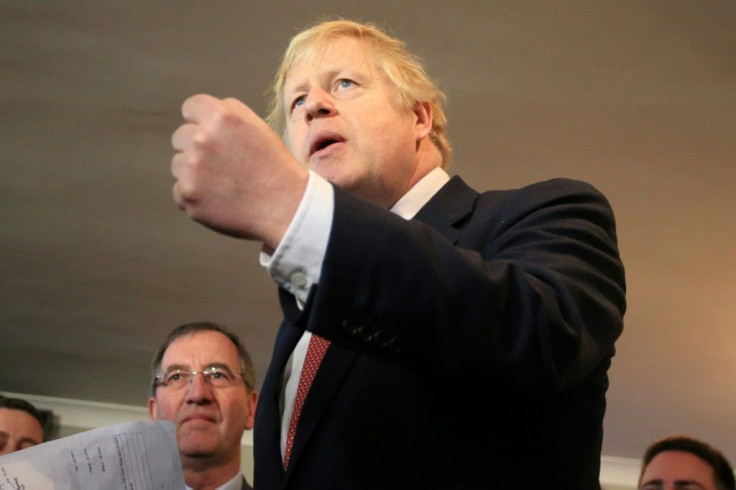Brexit Update: Goodbye Europe, Deal Passes In House Of Commons

KEY POINTS
- The bill sets a Dec. 31, 2020, deadline for new deals with EU
- Labour leader Jeremy Corbyn and SNP remain opposed to bill
- The Brexit saga has lasted three years
British lawmakers passed a measure on Friday that will allow the U.K. to leave the European Union by Jan. 31.
Members of the House of Commons voted 358 to 234 in favor of the EU Withdrawal Agreement Bill, which also prohibits any extension of the transition period beyond the end of 2020 – meaning the U.K. and EU must complete new trade and security agreements before Dec. 31, 2020.
The bill permits British courts to reconsider rulings by European Court of Justice after Brexit and will require government ministers to report to Parliament any disputes that arise with the EU.
The amended bill also removed a clause on workers’ rights. Conservatives, however, vowed that employee rights will be guaranteed in separate legislation.
The bill now comes under further scrutiny in parliamentary debates in both chambers. Those debates are scheduled for Jan. 7,8 and 9.
Given Prime Minister Boris Johnson’s dominant Conservative majority, the bill is expected to become law easily.
Johnson, who based much of his successful campaign on the U.K, departing Europe, said they are now "one step closer to getting Brexit done.”
"It ensures we depart on Jan. 31. At that point Brexit will be done. It will be over," Johnson told MPs. "The sorry story of the last three years will be at an end and we can move forward. This is a time when we move on and discard the old labels of ‘leave’ and ‘remain.’ Now is the time to act together as one reinvigorated nation.”
While Labour leader Jeremy Corbyn told party members to oppose the bill, six Labour MPs defied him to support Brexit.
"Labour will not support this bill as we remain certain there is a better and fairer way for this country to leave the EU," Corbyn said.
Corbyn labeled the bill as “terrible” and warned it will "sell out public services" and "sacrifice hundreds of thousands of jobs in the process.”
Ian Blackford, a senior member of the Scottish National Party, also blasted the bill.
"Scotland still totally and utterly rejects Brexit, yet the prime minister is blindly hurtling toward the cliff edge with these Brexit plans that will leave us poorer, leave us worse off," he said.
But even Liberal Democrat MP Wera Hobhouse, who opposed Brexit, conceded: “the election has produced a result, we will leave the EU at the end of January. The battle to stop Brexit is over.”
While critics contend there is not enough time to write up new trade and security agreements with Europe before the transition period ends, Johnson insisted he will be able to strike an "ambitious free trade deal" with the EU. He also called for a “deep, special and democratically accountable partnership with those [EU] nations we are proud to call our closest friends.”
Some businessmen and economists fear if Johnson can’t complete trade deals in the allotted time – that is, a “no deal Brexit” -- the U.K.’s trade would be hurt and possibly push the country into recession.
Labour Party MP Hilary Benn called Johnson’s bill “a gamble with our nation’s economy.”
Although Britons approved withdrawal from Europe in a June 2016 referendum, by a vote of 52% to 48%, Prime Minister Theresa May failed to get it through Parliament three times, leading to her resignation earlier this year.
© Copyright IBTimes 2025. All rights reserved.





















